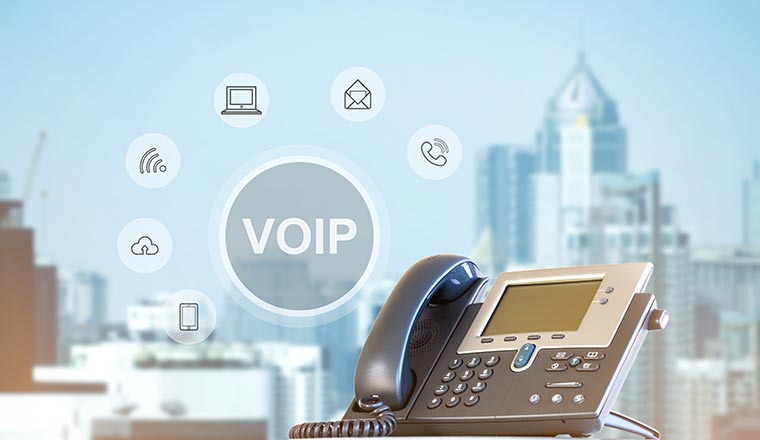The End of an Era: Traditional Phone Lines Are Giving Way to VoIP

Traditional business phone lines, also known as Plain Old Telephone Service (POTS) or copper lines, are being phased out by telephone companies in favor of newer technologies such as Voice over Internet Protocol (VoIP). This is due to several factors, including the high cost of maintaining copper infrastructure and the increasing popularity of VoIP.
What Are the Options to Replace Business POTS?
There are several options available to businesses that are looking to replace their traditional phone lines. Here are a few of the most popular options:
Voice over Internet Protocol (VoIP):
VoIP is a technology that allows you to make and receive phone calls over the Internet. This can save you money on your phone bill, as you will not be charged for long-distance calls. VoIP also offers many other features, such as call forwarding, call recording, and video conferencing.
Cloud-based phone systems:
Cloud-based phone systems are hosted by a third-party provider, so you do not need to install or maintain any hardware. This can save you money and time, as you will not have to worry about purchasing, installing, or configuring equipment. Cloud-based phone systems also offer several features, such as call forwarding, call recording, and video conferencing.
Mobile phone apps:
Mobile phone apps can be used to make and receive business calls using your smartphone. This can be a convenient option for businesses that have employees who work remotely or who are frequently on the go.
Here are some of the benefits of replacing traditional phone lines with VoIP or other newer technologies:
Cost savings:
VoIP can save you money on your phone bill, as you will not be charged for long-distance calls. You may also be able to save money on maintenance costs, as you will not have to worry about maintaining copper infrastructure.
Increased flexibility: VoIP and other newer technologies offer many features that can make your business more flexible. For example, you can easily add or remove users, and you can forward calls to any device.
Improved productivity:
VoIP and other newer technologies can help to improve productivity by making it easier to communicate with customers and employees. For example, you can use video conferencing to hold meetings with employees who are located in different parts of the world.
How to Choose the Right Option for Your Business
The best option for your business will depend on your specific needs and budget. Here are a few factors to consider when making your decision:
Number of employees: If you have a small number of employees, you may be able to get by with a simple VoIP solution. However, if you have a large number of employees, you may need a more robust solution that can handle multiple calls simultaneously.
Features:
Consider the features that are important to your business. For example, if you need to be able to forward calls or record calls, you will need to make sure that the solution you choose supports these features.
Budget:
Consider how much you are willing to spend on a new phone system. VoIP solutions can be very cost-effective, but cloud-based solutions and mobile phone apps can be more expensive.
If you are not sure which option is right for your business, you can contact a telecommunications consultant for help. They can assess your needs and recommend a solution that is right for you.
Here are some additional resources that you may find helpful:
Federal Communications Commission (FCC): https://www.fcc.gov/
Consumer Reports: https://www.consumerreports.org/electronics-computers/telecom-services/buying-guide/
Request Quote To Replace Your Business Phone Lines Today!








